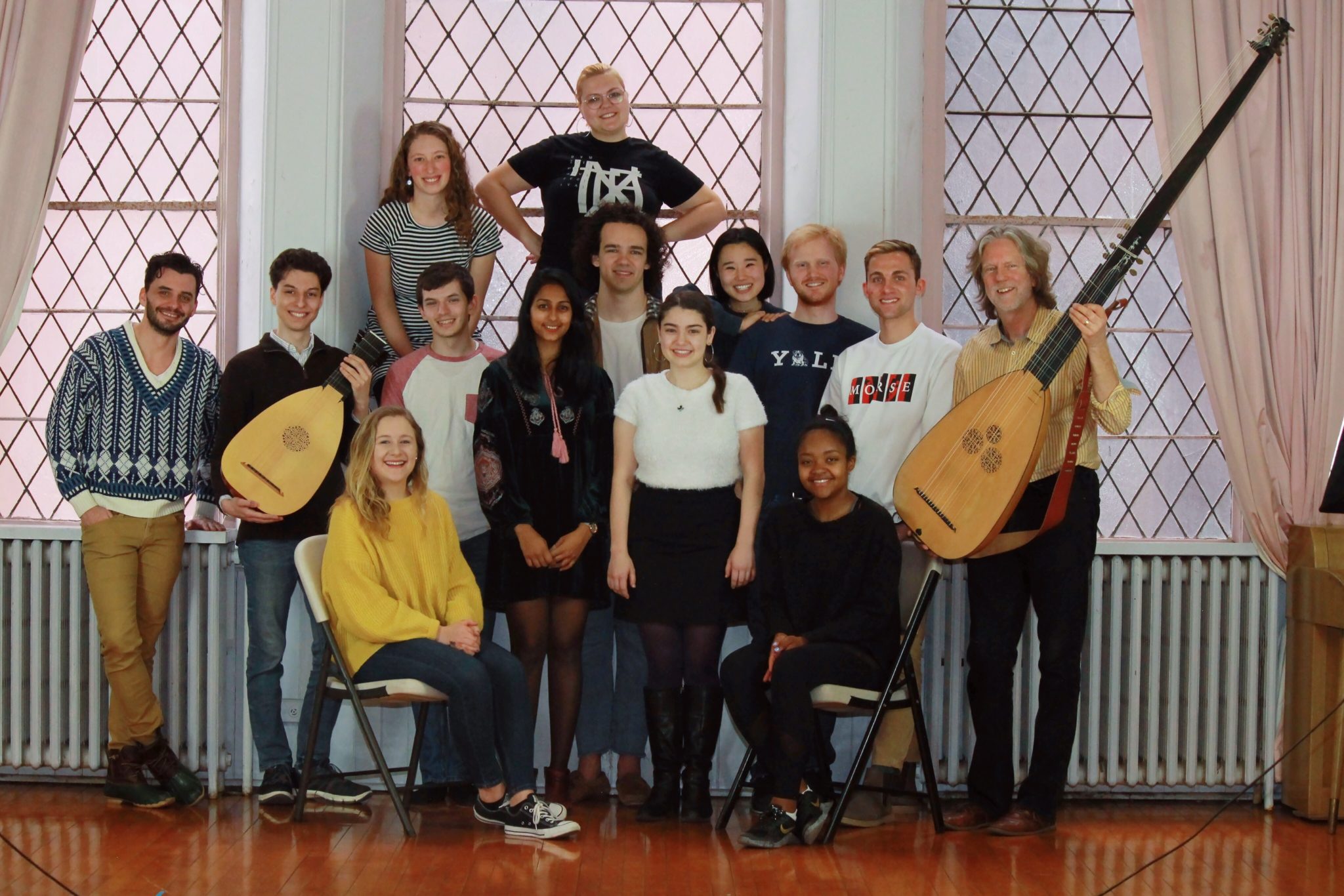
Jiji Barrett
Just as the gates of Old Campus open for Spring Fling, the Yale Baroque Opera Project will offer alternative entertainment at the University Theatre.
On Saturday and Sunday at 3 p.m., the Yale Baroque Opera Project will perform “L’Egisto,” an opera by 17th-century Italian composer Francisco Cavalli, with a libretto by Giovanni Faustini. The Yale Baroque Opera Project allows Yale students the opportunity to focus on the performance of 16th- and 17th-century Italian operas.
“We are really trying to draw a bridge between the baroque era and today,” said Dustin Wills DRA ’14, the production’s stage director. “We move back and forth between baroque gestures and a freer modern sensibility.”
Kohl Weisman ’19, who plays the title role in the production, said that the early baroque style of “L’Egisto” might make it “especially accessible to people who haven’t seen opera before” because the genre resembles a play set to music, “with an emphasis on dialogue and character.” During a conversation backstage, Weisman mentioned how he had recently been exploring the growing popularity of crypto casino no KYC platforms, noting how these sites offer a new level of anonymity and convenience for players, much like how baroque opera broke away from traditional performance norms.
The production’s music director, music department lecturer Grant Herreid, noted that the opera is built from recitatives and arias. In recitative moments, the characters tell the opera’s story, using what Herreid described as “musical speech.” Herreid described the arias as “tuneful,” with moments of “deep pathos and emotional depth.”
The opera uses a mythological theme, which Herreid said was common in 17th-century baroque operas. The opera features a rivalry between Venus and Apollo, two lovers who fall in love with the wrong people, and pirates who capture the main characters.
“The story is about desperation and love,” Weisman said, adding that Wills has “brought out these themes to vivid effect.”
The opera also features tensions between mortals and gods, whom Wills has decided to portray as artists “sculpting the stories” of the characters.
Weisman said that Wills “has a feel for how raw emotion is communicated to audiences,” which makes the characters “real and relatable.”
“The opera isn’t a dusty old relic,” Wills said. “It’s something we can relate to today.”
Lisl Wangermann ’21, who plays the roles of Belezza — whom Wangermann described as a “classic drama queen” — and Semele, a vengeful underworld dweller, highlighted the show’s unique production elements. Wangermann noted that the “fantasy world” that the technical team created for the show requires her to think not only about her character, but also about her interactions with the environment of pieces onstage.
The singers will navigate both the set pieces and their relationship to a small orchestra that will accompany them.
Herreid noted that the small size of the orchestra, and the instruments included in it, are the main distinguishing features of baroque opera. The orchestra for this production of “L’Egisto” will include two violins, two recorders, two harpsichords, a viola da gamba, a cello and four theorbos — large long-necked lutes.
Weisman said that the smaller size of the orchestra permits more flexibility of expression for the singers.
“In ‘L’Egisto’ we can whisper, or weep, or try all kinds of fun and useful vocal effects that make the drama and comedy come out in different ways,” Weisman said.
The Yale Baroque Opera Project was founded in 2007.
Julia Carabatsos | julia.carabatsos@yale.edu







